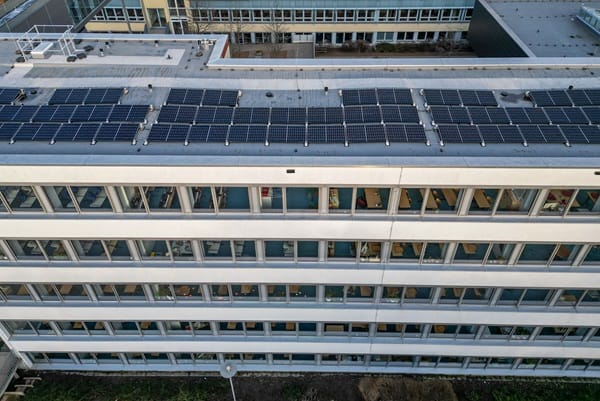Harnessing the sun: How solar panels can reduce your business costs – London Loves Business
In recent years, the global push for sustainable energy solutions has gained considerable momentum. Among the various renewable energy sources, solar power stands out as an accessible and efficient option for businesses aiming to reduce operating costs. By installing solar panels, companies can significantly cut their energy bills while also contributing positively to environmental sustainability. This article aims to delve into how solar panels can reduce your business costs and offer practical insights into the financial incentives available, including solar panel grants.
The economics of solar power
For many businesses, energy consumption represents a substantial portion of operating expenses. Traditional sources of electricity can be costly and susceptible to price volatility, which can strain financial planning. By contrast, solar power offers a stable and often less expensive alternative. Once your solar panel system is installed, the energy generated is virtually free, save for minimal maintenance costs.
Over time, the initial investment in solar panels can be recouped through savings on energy bills, typically within five to ten years depending on the size of the installation and the geographical location of the business. Moreover, solar panel grants available from both governmental and non-governmental sources can help to offset the initial costs, making the transition to renewable energy more financially viable.
These grants, often provided to encourage businesses to adopt sustainable practices, can cover a significant portion of your installation costs, thereby reducing the payback period and increasing the overall return on investment.
Tax benefits and incentives
In addition to solar panel grants, there are numerous tax benefits and incentives designed to encourage businesses to adopt renewable energy solutions. Investment in solar panels can qualify for tax deductions under certain regulations, occasionally allowing businesses to write off a portion of their investment costs. For instance, in the UK, the Enhanced Capital Allowance (ECA) scheme allows businesses to claim 100% of their investment in renewable energy technologies against taxable profits in the first year.
Furthermore, the Feed-in Tariff (FiT) scheme allows businesses to earn money by generating their own electricity and exporting any surplus back to the grid. Though the FiT programme has been closed to new applicants since 2019, early adopters who are already enrolled will continue to benefit. New schemes akin to FiT are being considered by policymakers, which may further incentivise businesses to make the shift towards solar energy.
Environmental impact
Beyond the financial considerations, investing in solar panels is a proactive step towards reducing your business’s carbon footprint. Solar power is a clean and renewable energy source that does not emit greenhouse gases or other pollutants. By generating your own electricity, you can significantly reduce your reliance on fossil fuels, thereby contributing to global efforts to combat climate change. This commitment to sustainability can improve your corporate image, making your business more attractive to environmentally conscious consumers and partners.
Implementing green initiatives can also positively impact employee morale and loyalty. Knowing that their employer is committed to sustainable practices can foster a sense of pride and purpose among employees, thereby improving overall job satisfaction and potentially reducing staff turnover.
Operational efficiency
Solar panel systems are highly efficient, requiring minimal upkeep compared to other infrastructure upgrades. Modern solar panels come with warranties that can exceed twenty years, offering years of low-maintenance energy production. Moreover, newer technologies such as smart inverters and energy management systems can optimise energy use, making your business even more efficient.
Solar panels also provide a reliable energy source. During periods of peak sunlight, your business can operate almost entirely on solar power, reducing dependency on the grid and lowering the risk of outages. In times of increased energy demand, this reliability can prove invaluable.
Conclusion
Embracing solar power is more than just a smart financial decision – it’s an investment in the future. By tapping into this abundant and renewable energy source, your business can substantially reduce its operational costs, take advantage of various financial incentives, and make a significant contribution to the environment. The initial costs, often mitigated by solar panel grants and other incentives, are quickly outweighed by the long-term savings and environmental benefits.
As the world continues to move toward greener and more sustainable energy solutions, businesses that adopt solar power stand to benefit immensely. By harnessing the power of the sun, you not only reduce your costs but also position your business as a leader in sustainable practices.


